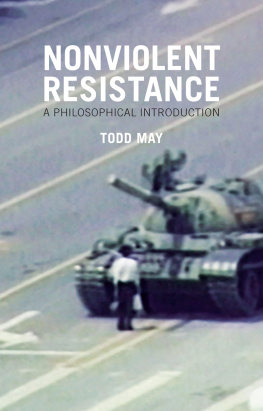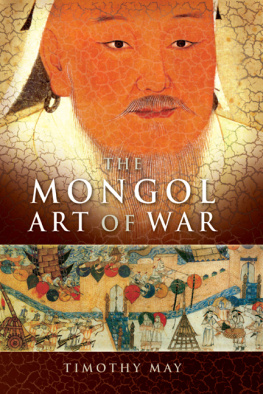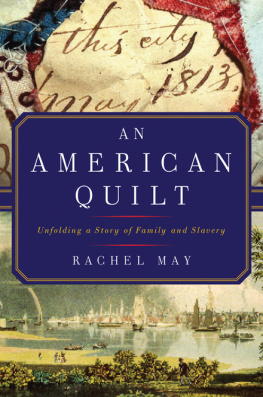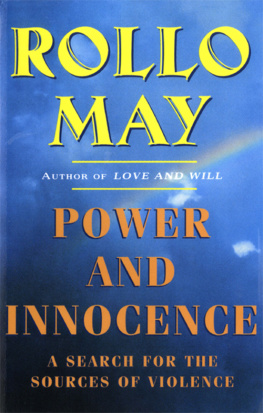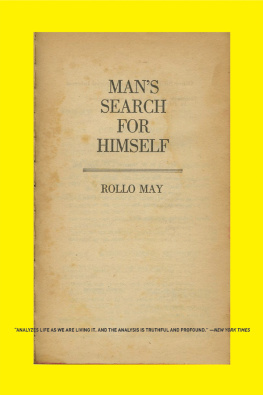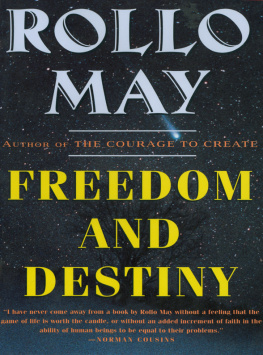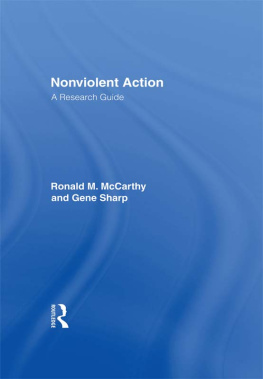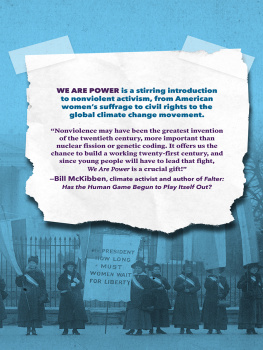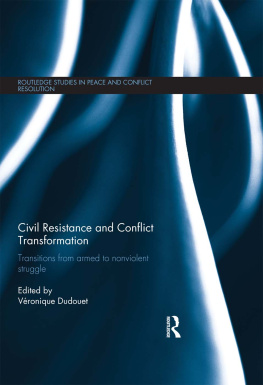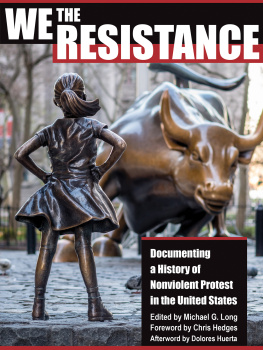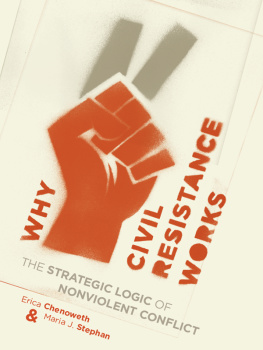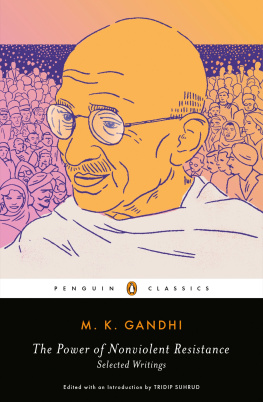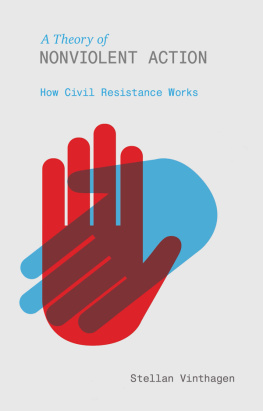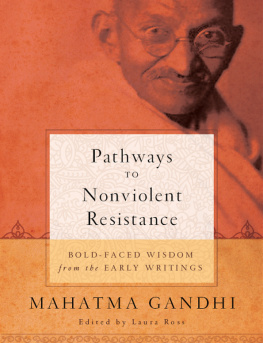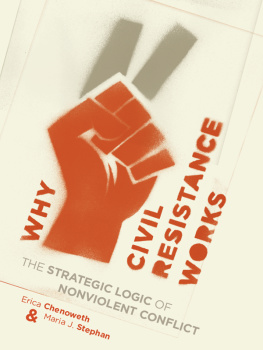May - Nonviolent Resistance: A Philosophical Introduction
Here you can read online May - Nonviolent Resistance: A Philosophical Introduction full text of the book (entire story) in english for free. Download pdf and epub, get meaning, cover and reviews about this ebook. year: 2015, publisher: John Wiley & Sons, Inc., genre: Politics. Description of the work, (preface) as well as reviews are available. Best literature library LitArk.com created for fans of good reading and offers a wide selection of genres:
Romance novel
Science fiction
Adventure
Detective
Science
History
Home and family
Prose
Art
Politics
Computer
Non-fiction
Religion
Business
Children
Humor
Choose a favorite category and find really read worthwhile books. Enjoy immersion in the world of imagination, feel the emotions of the characters or learn something new for yourself, make an fascinating discovery.
Nonviolent Resistance: A Philosophical Introduction: summary, description and annotation
We offer to read an annotation, description, summary or preface (depends on what the author of the book "Nonviolent Resistance: A Philosophical Introduction" wrote himself). If you haven't found the necessary information about the book — write in the comments, we will try to find it.
May: author's other books
Who wrote Nonviolent Resistance: A Philosophical Introduction? Find out the surname, the name of the author of the book and a list of all author's works by series.
Nonviolent Resistance: A Philosophical Introduction — read online for free the complete book (whole text) full work
Below is the text of the book, divided by pages. System saving the place of the last page read, allows you to conveniently read the book "Nonviolent Resistance: A Philosophical Introduction" online for free, without having to search again every time where you left off. Put a bookmark, and you can go to the page where you finished reading at any time.
Font size:
Interval:
Bookmark:


Copyright Todd May 2015
The right of Todd May to be identified as Author of this Work has been asserted in accordance with the UK Copyright, Designs and Patents Act 1988.
First published in 2015 by Polity Press
Polity Press
65 Bridge Street
Cambridge CB2 1UR, UK
Polity Press
350 Main Street
Malden, MA 02148, USA
All rights reserved. Except for the quotation of short passages for the purpose of criticism and review, no part of this publication may be reproduced, stored in a retrieval system, or transmitted, in any form or by any means, electronic, mechanical, photocopying, recording or otherwise, without the prior permission of the publisher.
ISBN-13: 978-0-7456-7118-5 (hardback)
ISBN-13: 978-0-7456-7119-2 (paperback)
ISBN-13: 978-0-7456-9049-0 (epub)
ISBN-13: 978-0-7456-9048-3 (mobi)
A catalogue record for this book is available from the British Library.
Library of Congress Cataloging-in-Publication Data
May, Todd, 1955
Nonviolent resistance : a philosophical introduction / Todd May.
pages cm
ISBN 978-0-7456-7118-5 (hardback) ISBN 0-7456-7118-7 (hardcover) ISBN 978-0-7456-7119-2 (paperback) 1. Nonviolence. 2. NonviolenceHistory. 3. Political participationHistory. I. Title.
HM1281.M395 2015
303.61dc23
2014025914
The publisher has used its best endeavors to ensure that the URLs for external websites referred to in this book are correct and active at the time of going to press. However, the publisher has no responsibility for the websites and can make no guarantee that a site will remain live or that the content is or will remain appropriate.
Every effort has been made to trace all copyright holders, but if any have been inadvertently overlooked the publisher will be pleased to include any necessary credits in any subsequent reprint or edition.
For further information on Polity, visit our website: politybooks.com
I began thinking seriously about nonviolence roughly four years before the event that appears on the cover of this book. In January 1985 I joined the River City Nonviolent Resistance Campaign. At my first meeting, there were only two other people there. One of them, Molly Rush, had become famous infamous to some as a member of the Plowshares Eight. Along with the Berrigan brothers and several others, in September 1980 Molly entered a weapons facility, damaged nuclear warhead cones, and poured blood on the files there to protest against the Carter Administration's adoption of a first-strike policy. That was a policy that allowed the USA to strike first with nuclear weapons, rather than only using them for retaliation. Molly remains the most steadfast proponent of nonviolent resistance I have met. Liane Norman was an organizer, teacher, and writer about nonviolence, who introduced me to a number of texts (including several of hers) that allowed me to study aspects of nonviolence.
That first night we began planning a campaign of protest in the lobby of Westinghouse Electric Company headquarters, which is located in Pittsburgh where I was living. The reason we targeted Westinghouse did not have to do with their production of home appliances. Rather, it concerned their deep involvement in nuclear weapons production. (Later in the campaign, one executive told us that while only about a quarter of Westinghouse's resources were invested in weapons production, nearly half their profit came from it.) The nature of the protest was that it would take place over two weeks. Each day someone would walk into the lobby of the headquarters, hold up a sign protesting Westinghouse's nuclear involvement, and wait to be arrested. And, by the way, both Liane and Molly were going to be out of town during the first part of the protests, so could I oversee it?
Thus was I plunged into the world of nonviolent resistance. I have since participated in nonviolent campaigns of various sorts to protest against US involvement in Central America, apartheid in South Africa, the Israeli occupation of Palestine, the treatment of labor and labor unions, racism, and the oppression of gays, lesbians, and transsexuals. In recent years my involvement has slackened, mostly due to the difficulty of organizing in the area in which I live. Writing has gradually taken over from organizing, not without some regret. However, until now I have never written anything extended on nonviolence.
The opportunity arose when I was contacted by Polity's Louise Knight. A fellow academic, Brad Evans, had constructed a website (which is still going strong) called historiesofviolence.com. The goal of the website is to reflect on the character of violence in the wake of the 9/11 attacks. Brad asked me to contribute a talk to the website, and I requested to talk on nonviolence rather than violence. The reason for this is that we academics are often very good at critique, but less enthusiastic about framing alternatives. We are past masters at diagnosing what is wrong with a political, economic, or social arrangement, but tend to shy away from asking how it might be addressed. There is perhaps a good reason for this: academics should not be in the business of prescribing for others how to engage in their struggles. However, that precept does not preclude all kinds of reflective activity. My talk was geared toward developing a broad understanding of the role nonviolence has played in many recent struggles against oppression.
After viewing the talk, Louise was kind enough to invite me to submit a proposal for a book on nonviolence to Polity. When she contacted me I realized that although I had spent years in and around nonviolent struggle and even more years studying philosophy, I had never brought the two together. This book is an attempt to rectify that. There is much that has been written about nonviolence, and recent years have seen a minor explosion of literature on the topic from new histories to sociological studies to journal discussions. Some of that literature will be brought to bear in these pages, although I hasten to add that I am not an expert in the vast field of peace studies research. Philosophical reflection on nonviolence, however, has been sparse. (Reflection on violence has been less sparse, as Chapter 2 shows, but neither has it been a central concern of recent philosophy.) What I hope to have contributed here is a first extended philosophical attempt to think about the character of nonviolence, and especially campaigns of nonviolent resistance. My hope is not that this will fill a gap in the philosophical literature, but instead that it will open discussion on an area that is as neglected as it is urgent to think about. With luck, better minds than mine will extend and correct what I have written here in order to develop a rigorous and sustained reflection on what nonviolence is and what prospects it presents for future political engagement.
Between the evening I met Molly and Liane and now, many people have taught me about nonviolent resistance. Their names would fill a chapter of this book. However, I would especially like to thank my long-time friends and fellow activists Mark Lance and Jules Lobel. Moreover, my wife Kathleen has taught me much in this area. Her nonviolent instincts are surer than mine. (I will suggest no more in this direction than that I once earned the nickname Sugar Ray, not for any pugilistic skills of which I possess none but for a lapse in nonviolent discipline during a particularly tense political standoff.) More recently, my colleagues Candice Delmas and Chris Grau helped me think more clearly about how to approach the issue of violence, and hence of nonviolence.
Next pageFont size:
Interval:
Bookmark:
Similar books «Nonviolent Resistance: A Philosophical Introduction»
Look at similar books to Nonviolent Resistance: A Philosophical Introduction. We have selected literature similar in name and meaning in the hope of providing readers with more options to find new, interesting, not yet read works.
Discussion, reviews of the book Nonviolent Resistance: A Philosophical Introduction and just readers' own opinions. Leave your comments, write what you think about the work, its meaning or the main characters. Specify what exactly you liked and what you didn't like, and why you think so.

